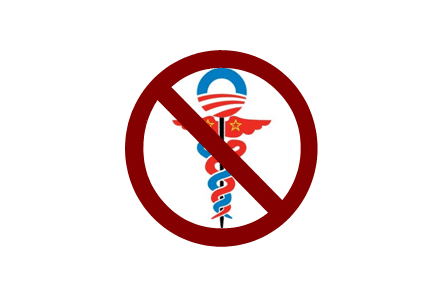
By Richard Manning
One of the primary goals of Obamacare was to expand Medicaid from a social safety net benefit to one available to the middle class. Post-COVID, that goal has been largely achieved with more than 90 million Americans on Medicaid.
What Obamacare did was allow/encourage states to expand Medicaid eligibility to people who earn 300 percent of the poverty level or below from its previous level of 200 percent. The result is that a family of four which earns $90,000 a year in 2023 is eligible for Medicaid at a cost of ____ to taxpayers.
States were encouraged to up the eligibility levels initially through a very generous promise that the federal government would cover 100 percent of the increased costs from 2014 through 2016, which has subsequently been ratcheted down to 90 percent by 2020 and beyond.
This deal along with pressure from health care groups has led to 43 out of 50 states expanding eligibility to 300 percent.
As Congress grapples with how to cut spending in the face of an exploding deficit during what the President calls the best of economic times, ending reimbursements to the states for Medicaid recipients who make between 200 and 300 percent of the poverty level should be pursued. This doesn’t have to be done in one big chunk but instead could be accomplished using a sliding scale to allow states and people to adjust.
In year one, the percentage of cost reimbursement for states could be lowered for people making between 200 and 300% by 20 percent with similar cuts for the following four years ending the federal taxpayer subsidization of the expansion in five years. It would be up to states which administer the program to determine if they want their residents to continue to receive Medicaid, but if they choose to keep the expansion, their taxpayers will be paying for it.
Bottom line is that if California, New York and Illinois want to continue to provide Medicaid to their residents who make between 200 and 300 percent of the poverty level, they can. But America’s fiscal crisis no longer allows our $33 Trillion in debt federal government to foot the bill for that choice.
The irony is that the current battle over spending does not even consider the impact that Obamacare’s Medicaid expansion has had on our spending growth, because Medicaid is regularly scheduled spending, rather than spending facing annual appropriation by Congress.
In fact, about 70 percent of all federal government spending is on auto-pilot – some covered by dwindling trust funds like Medicare and Social Security which account for a little more than a third of all federal government spending. When net interest payments on the debt are included, this jumps to almost half of total federal spending. Medicaid spending alone has jumped by $87 billion since 2021 alone with the number of people enrolled in the program increasing by more than 50 percent to an estimated 92.3 million at the end of 2022.
Politically, it was fear of facing the wrath of those who were made federal health care dependencies through the Medicaid expansion which caused the GOP determination to rip Obamacare out ‘root and branch’ to wither and die in 2017.
The question is whether anyone is going to wake up in Washington and understand that if you spent nothing on national defense and eliminated every agency in the federal government, they still would not be able to balance the budget due to escalating mandatory spending costs.
While the political class is clutching its pearls over whether minor cuts for the appropriated agencies can or should be achieved, the reality is that our current fiscal crisis has been simmering and in the very near future, the chickens will come home to roost, as lawmakers will have to decide on whether to keep their Social Security promises or pay the bankers and foreign countries who own most of our national debt.
Taking small to medium steps today, like returning the eligibility for Medicaid back to pre-Obamacare levels, will begin the process of healing our nation’s fatally ill fiscal balance sheet.
Rick Manning is the President of Americans for Limited Government.






